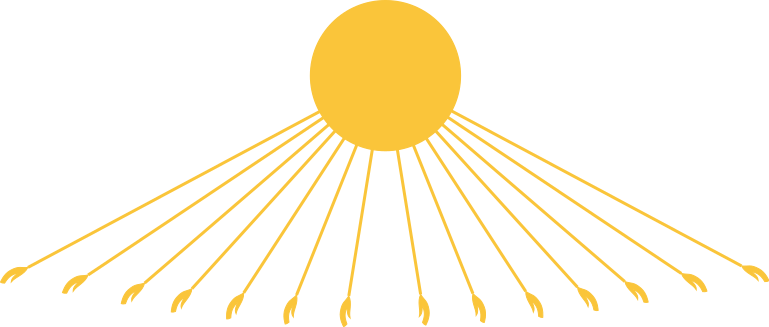Norway, which is one of Europe’s major competitor’s to Russian energy, is profiting immensely from the death agony caused by the continuation of the Ukraine war, one of the most putrid outcomes of which is the destruction of Russia’s Nord Stream.
Since the beginning of the further invasion of Ukraine on February 24th, 2022, disruptions in the supply of gas, oil, or coal have caused the prices of these precious raw materials to soar. With the continuation of the war, these prices are set to continue to soar.
European gas prices have roughly tripled since the war’s inception 2022 following Russia’s cut in supplies both before and after its invasion of neighboring Ukraine, and the price of these raw materials is up tenfold compared to levels seen prior to last year.
Along with the United States of America (the profits of whose oil companies grew “a staggering 242 percent” in the second quarter alone, representing the combined profits of over $64 billion from the six major multinational oil giants—ExxonMobil, Chevron, Shell, BP, TotalEnergies and Eni), Norway stands to benefit immensely from the continuation of the Ukraine war, especially with respect to its own sale of energy. Norway expects to earn more than double what oil companies in the U.S.A. earned in the second quarter with expected revenues from its new pipeline, the Baltic Pipe, is expected to earn a record $131 billion in 2023.
On September 27th, 2022, the day after a bombing caused Russia’s Nord Stream to explode, Norway announced the initiation of gas transports on its new construction, the Baltic Pipe. The Baltic Pipe is a major competing pipeline to Russia’s Nord Stream 1 and Nord Stream 2, or what was described collectively as Russia’s Nord Stream.
The bombing of the Nord Stream occurred on September 26th, 2022. After the bombing, former Polish Minister Radek Sikorsky, a member of several NATO think tanks whose wife is Anne Applebaum, a prominent U.S. foreign policy commentator, pointed the finger directly at the United States of America in a tweet. Sikorski tweeted “Thank you, USA,” along with a picture of the massive gas spill in the Baltic Sea. Sikorski deleted the tweet, however.
Equinor ASA, a Norwegian state-owned multinational energy company headquartered in Stavanger (formerly known as Statoil and StatoilHydro), signed a long-term sales agreement to deliver additional natural gas supplies to Poland via the Baltic Pipe system. Leaders from Poland, Norway and Denmark attended a ceremony on September 27th, 2022 in Szczecin, Poland, to mark the system’s opening, hours after reports of the explosions at Nord Stream 1 and Nord Stream 2.
During the ceremony, Norway’s Terje Aasland, minister of petroleum and energy, said during the ceremony: “Putin uses energy as a weapon in an attempt to destabilize Europe and break our unity.” He added: “It will not succeed. Today is also a testimony to that.”
Aasland, however, did not note how Norway itself uses energy as a means of profiting from the war in Ukraine, whether or how the support of its allies in the European Union for Ukraine is destabilizing, or disrupting its “unity,” on the continent.
Described as the end of Russia’s dominance over gas in the different spheres of energy, the Baltic Pipe is designed to deliver 10 billion cubic kilometers of gas a year from Norway to Poland, 3 billion cubic kilometers from Norway to Denmark, or billions of cubic kilometers from Norway to neighboring countries, providing a basis for Norway to reap enormous profits from the delivery of gas to these countries.
The Baltic Pipe runs from the Norwegian shelf to Poland via Denmark and the Baltic Sea. Two pipe sections, developed separately by Danish gas and electricity operator Energinet, and Polish gas operator Gaz-System, meet at a compressor station in Denmark, indicating the transnational geography of the pipeline’s span.
Energinet, a Dutch conglomerate, stated at the ceremony that the pipe is scheduled to begin operating at full capacity towards the end of November, corresponding closely with the rise in need for gas throughout Europe with the onset of winter.
Russia terminated supplies of gas to Poland after the latter refused to pay in roubles in April, 2022. In response to the ceremony’s opening of the Baltic Pipe, Polish Prime Minister Mateusz Morawiecki remarked during the ceremony: “The era of Russian domination in the field of gas is coming to an end; the era of blackmail, threats, and extortion.”
Funded with no less than $254.55mn from the European Union through the Connecting Europe Facility, the Baltic Pipe is described as a “key project for the security of supply of the region and the result of an EU policy drive to diversify sources of gas,” said Kadri Simson, European Commissioner for Energy.
Keen to become a hub in Central and Eastern Europe for the import and distribution of liquified natural gas, Poland, whose ruling party is currently engaged in a massive effort to rearm, views the Baltic Pipe’s deliveries of gas as a way to disable Ukraine’s leverage over transit fees on Russian gas. In addition, the destruction of the Nord Stream enables Poland to reduce its dependence on Russia and the Nord Stream 2 pipeline for its LNG supplies.
In response to claims of war profiteering, Lan Marie Nguyen Berg, a member of parliament representing the Norwegian Green Party, said the following: “It is not our fault that Putin is waging this energy war on Europe. But we can decide what we want to do with what we earn from this.”
